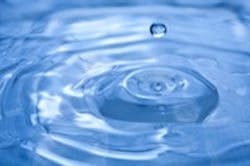Emerson to Provide Technology for Two DC Water Projects
Emerson Process Management has been selected to automate equipment and processes for two environmental projects at DC Water’s Blue Plains Advanced Wastewater Treatment Plant in Washington, D.C.
Blue Plains is the largest plant of its kind in the world, with a capacity of 370 million gal per day. DC Water is undertaking two major capital improvement projects—enhanced nutrient removal, and thermal hydrolysis and anaerobic digestion—that will help it comply with evolving environmental regulations and protect the Chesapeake Bay watershed while serving an expanding population. Emerson’s Ovation control system will help DC Water optimize operations of these new facilities.
The plant currently utilizes a nitrification/denitrification and filtration process to reduce the amount of nitrogen in the water. Excess nitrogen causes an overgrowth of aquatic plants and algae, robbing water of the oxygen fish and other aquatic life need to survive. The $950 million enhanced nutrient removal project is designed to reduce almost to the “limit of technology” the level of nitrogen that DC Water discharges to the Potomac River. Ovation technology will monitor and control all major equipment and processes related to the project which, once complete, will enable Blue Plains to produce effluent with low levels of nitrogen.
The second project, thermal hydrolysis and anaerobic digestion, will enable DC Water to reduce biosolids by 50%. This will not only cut CO2 emissions associated with hauling biosolids away by up to 60 tons, but will also allow DC Water to burn the methane gas byproduct to generate electricity that will help offset power by one third for its operations. Additionally, the remaining Class A biosolids will have greater commercial value, because they offer more reuse options as a fertilizer than the plant’s current biosolids.
The control system will monitor and control the anaerobic digesters, final dewatering and other equipment and processes related to this initiative, as well as interface to the combined heat and power plant. The thermal hydrolysis process, developed by Norway-based Cambi, is being successfully used to treat wastewater in Europe and Australia. When complete, Blue Plains will be the first plant in North America and the largest in the world to utilize the thermal hydrolysis process.
“As a leader in cost-effective use of technology, DC Water recognized early on that an integrated control and automation platform provides the foundation for efficiently integrating new processes needed to safeguard the environment and public health,” said Bob Yeager, president of Emerson Process Management’s Power & Water Solutions. “Over the last decade or so we have had a very positive, collaborative relationship with DC Water—one we look forward to continuing as we work together on these ambitious projects.”
Source: Emerson Process Management
